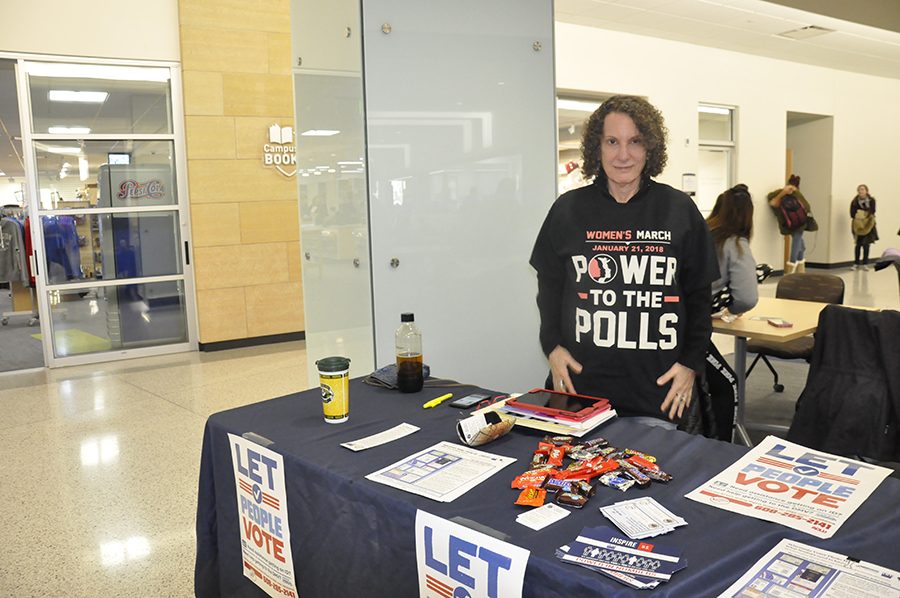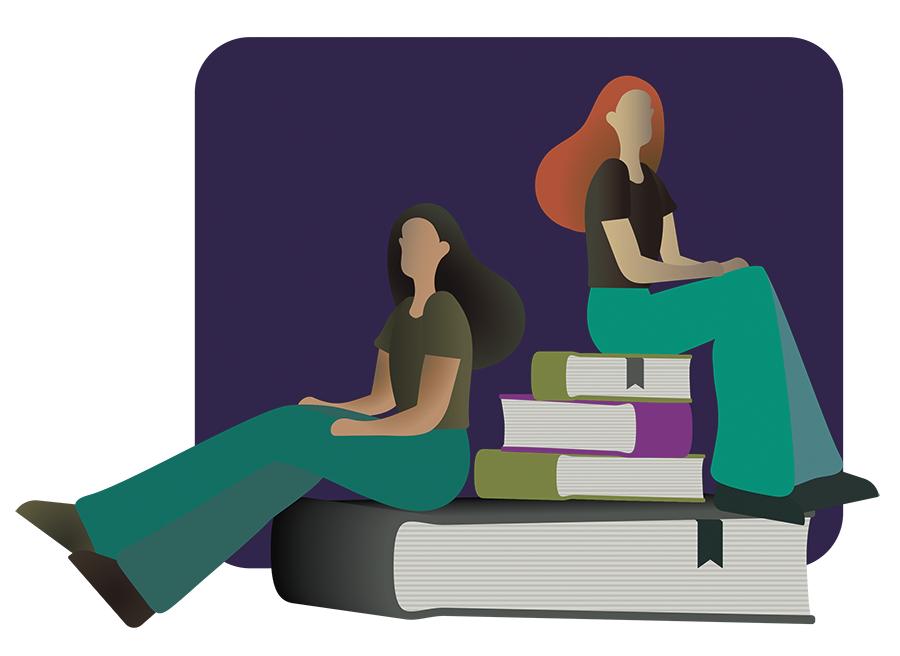Study shows drop in student voter registration
A League of Women Voters volunteer helps students get registered to vote during a visit to the Truax Campus in February.
March 20, 2018
Earlier this school year, a report by the National Study of Learning, Voting, and Engagement (NSLVE) provided details on the registration and voting rates of students in federal elections since 2012 at more than 1,000 college nationwide.
Madison College was one of the colleges that voluntarily participated in the study conducted by Tufts University’s Institute for Democracy and Higher Education.
The study looked at voter habits, comparing registration and voting rates by year and demographic.
To get their data, the NSLVE works with the National Student Clearing House, a non-profit organization which strives to provide educational reporting, verification and research. The National Student Clearing House matches student enrollment records with publicly available voting records which they then send to NSLVE. No student names or party affiliations are given to NSLVE.
Overall, the data from the study showed that Madison College students voted at a higher rate than the national average in both the 2012 and 2016 presidential elections, but both student voter registration and voting rate dropped significantly from 2012 to 2016.
Madison College student voter rate in the 2016 presidential election was 56.7 percent, down 3.9 percent from 2012 but higher than the national average of 50.4 percent.
The drop in registered voters was even greater.
Prior to the 2012 presidential election, 73.6 percent of Madison College students were registered to vote. By the 2016 presidential election, that number had fallen to 66.8 percent.
Student Senate advisor Jackie Dahlke helped coordinate a voter education and registration effort prior to the 2016 election. She and fellow Student Life staff member Ro Encizo had the opportunity to review the NSLVE report and both say the data raised more questions than answers.
“I start asking myself well why, why did we go down, and … where, where did we go down, was it a specific demographic, or a specific age group,” said Encizo.
Was it because as Dahlke said, there was “this very historic election with Obama running and all the hopefulness and then you almost have an election cycle (where) people were asking is this really happening.”
Or “was it because we had a male vs. a female, was it because there was a lot of news media…does it have to do something with all these email leaks,” said Encizo.
Or he continued, was it because a lot of people were under the impression that one party was going to win, so my vote doesn’t matter?
The NSLVE study broke down its findings by a variety of demographics, and those consistently show a decrease in both voter registration and voting across the board.
Voting dropped for all age groups except the 40- to 49-year-olds, which increased just a fraction of a percent. The 18- to 21-year-olds and the 22- to 24-year-olds saw a decline of more than 5 percent. All other age groups fell between 2 and 3 percent.
Encizo, now a firm believer in voting, didn’t believe in voting when he was younger.
“When I think back to why I didn’t think voting was very important it has a lot to do with my family,” he said. “My family was always under the assumption well if we stay low on the radar, and no one makes noise therefore nothing bad will happen to us, and that whole assumption would trickle down to even voting.”
But when Encizo turned 18 he began doing more research on his own as to why it’s important to vote.
Now, he’s a firm believer in the power of the individual.
“I give this example of a puddle a lot of the times,” said Encizo. “If I were to throw one rock at a puddle… it might create a small ripple, now if keep throwing more rocks at it, that ripple is going to get bigger and bigger and bigger, and sooner or later that small little ripple…is moving the entire puddle.”
For Dahlke, the solution to low voter turnouts might lie with how voting is conducted.
“There has to be a way that is easier,” she said. It’s hard for people to get to the polls, particularly elderly citizens or people that don’t have a ride. Or people who work on a different shift, the polls might not even be open when they’re available. It’s also confusing with the changes in polling locations, she said.
“I think it sure would be nice if we could figure out… a way to vote online,” she said. “I mean if I can file my taxes online and that’s legal… then why shouldn’t we be able to figure out a way where I can vote online…”
“If as a country we could come to a place where it’s like people didn’t need to go to a polling place on a certain day at a certain time and we had a week or two weeks over which we had access 24 hours a day to vote. I think that we might vote at a higher rate,” Dahlke said.
Whatever it is that is causing the decrease in voter turnout both Dahlke and Encizo agree that voting is an important and crucial part of being a citizen.
































